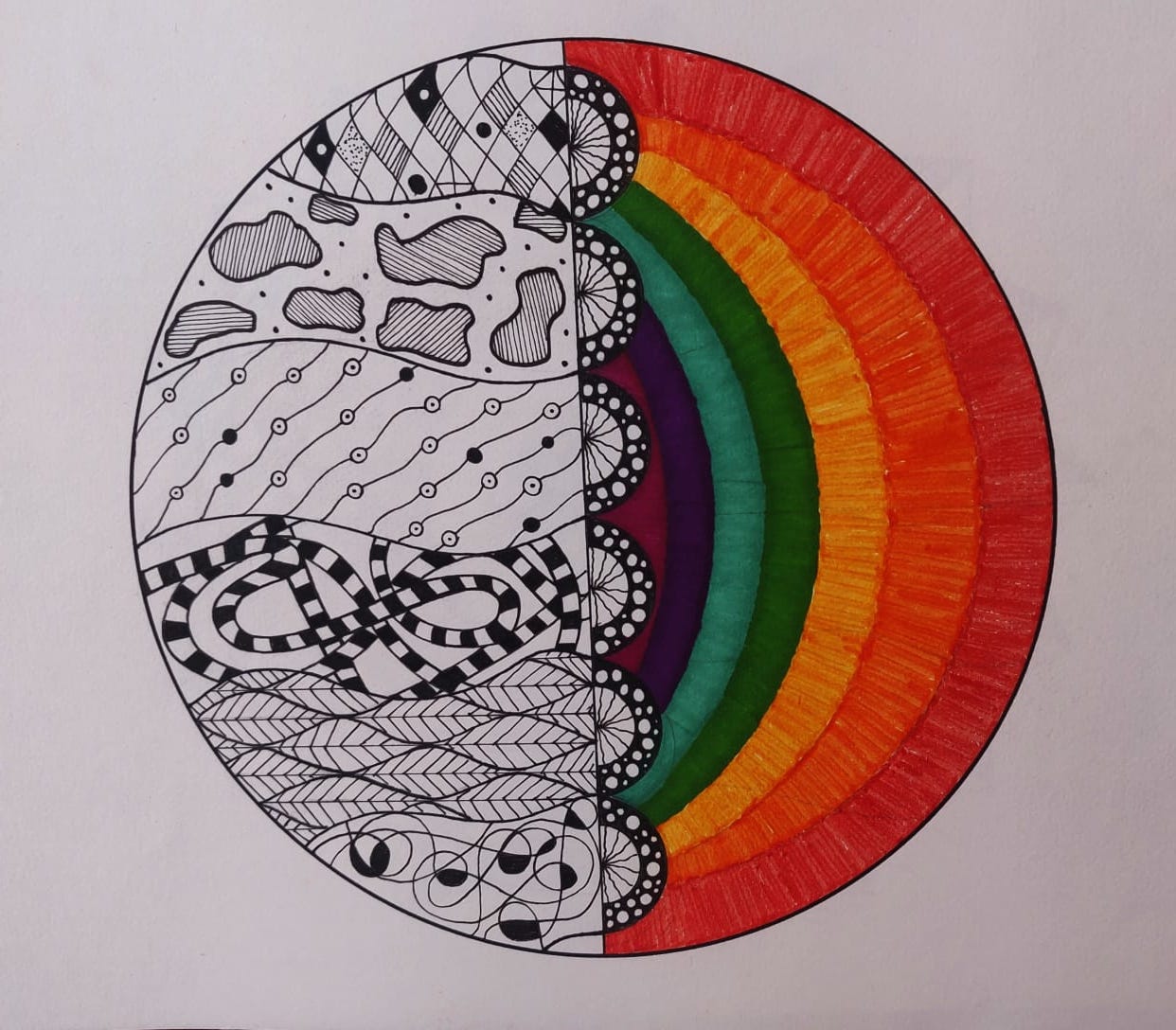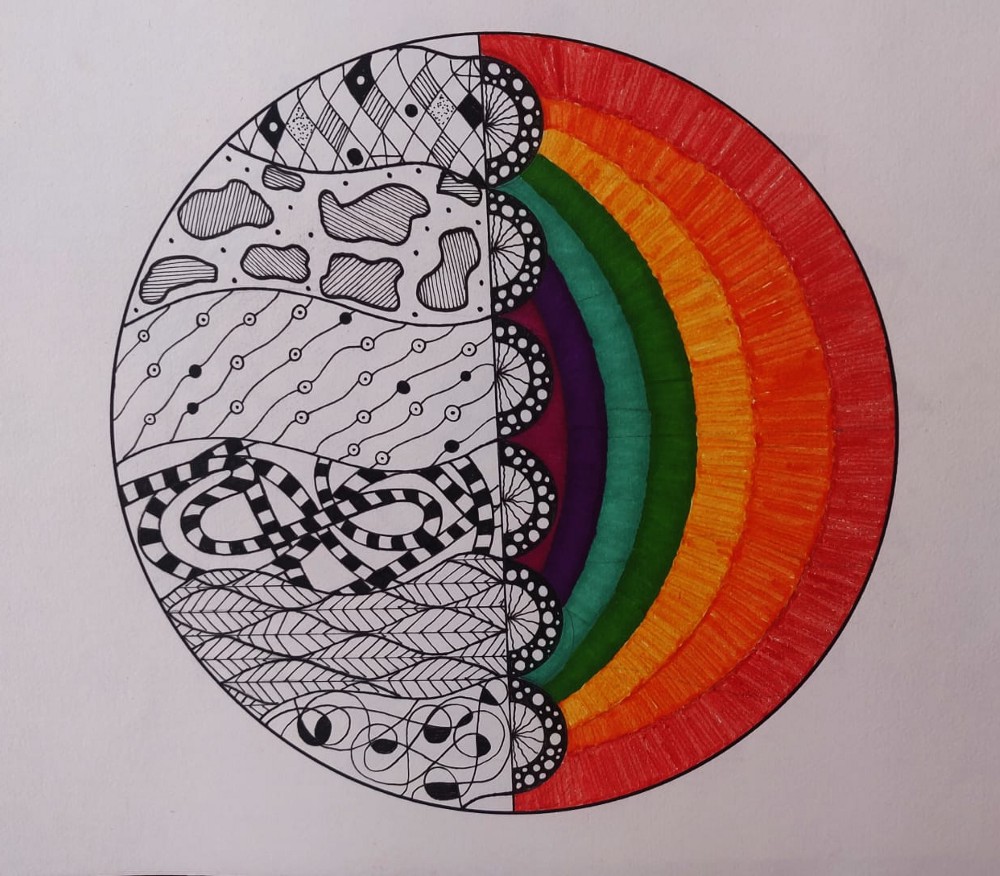A 3-part series on the impact of the COVID-19 crisis on India’s education system and an invitation to a new global movement in education — #WhatIf #KindnessIsTheNewNormal
Part 3: How could our education systems respond to the COVID crisis — An Invitation to a Global Movement to transform Education

Breathe in.
Breathe out.
Breathe in.
Breathe out.
(Repeat)
Kessler, the world’s foremost expert on grief, in a recent HBR article outlined the 6 stages of loss that we are experiencing across the world in response to the pandemic. He outlines that the discomfort we are feeling is ‘grief’. Both about what is currently happening and anticipatory grief, because the future is uncertain. This is in response to a pandemic which on last count has taken over 200,000 lives and counting.
In addition to the ‘discomfort’ described above, which is the most prevalent feeling, let us now add the anxiety of not knowing where your next meal will come from. Then the fear of knowing that if you or anyone in your family contracts the virus you can’t afford healthcare. And then the trauma of being stuck at home with no contact to your social support system, away from abusive and debilitating home situations. Did I mention you are also 18 years or below in age and living on the margins of society? This is what 130 million children from vulnerable backgrounds in India are experiencing as you are reading this. This is without considering that you could be a girl and much more vulnerable to your needs being ignored or a child belonging to a minority religious group watching the communalization of a global pandemic.
Where do you go when all this is over? If you are ‘lucky enough’ to have not been completely displaced by the pandemic, you hopefully go to school.
But just how prepared are schools to respond to this reality?
As this reality sinks in, we invite you, first and foremost, to not panic. Let’s take a breath! Let’s pause!
We are facing an unprecedented situation. No one has a map pointing us towards the right direction. We have all experienced collective grief and loss at a global and unimaginable level. Let us allow ourselves a pause. Let it sink in.
And then, when we are ready to respond, let us ask ourselves what is the most compassionate offer we can make to our children under these circumstances? Is our best foot forward, dumping our own anxiety of ‘loss of learning’ on them, or to recognize that they have learnt perhaps the most difficult lesson of their lives in the last few months as they stayed put in their homes?
As we begin to look at school systems as support systems for students post the pandemic, let’s consider the following —
#WhatIf schools become the place that allow our children to make sense of the world again?
#WhatIf schools are the spaces where children are given opportunities to build resilience that could help them find normalcy again?
In a world where physical distancing is going to be the norm, #WhatIf schools teach our children that our interconnectedness is cause for celebration and not to be feared?
#Whatif school is the place where their well-being is the most important outcome; above all else?
#Whatif, school systems, teachers and parents across the world choose to invest in healing and compassion this year and let go of the anxiety of completing an already outdated syllabus?
#Whatif, instead of examinations based on rote-learning, we ask our students; do you know how to be kind to each other? Do you know how to take decisions that are good for you, your community and for the planet? Do you know how to collaborate and celebrate the success of others? Do you know how to heal?
Considering how our school and societal systems are currently designed, this is not going to be easy. Yet this is the most important calling of the moment.
What if, we allow this year to be the year our children learn to Heal and Be Kind — #WhatIf #KindnessIsTheNewNormal.This is an invitation we are making in our context for transforming education. Your #WhatIf might look different.
And,
Before we jump into a 10-point plan on how to make that happen, we invite each of us to take a great pause, be still, listen and allow for emergence — What is the #WhatIf you wish to invite into your imagination? What is the #WhatIf you wish to change in your context — your country, your region, your state, your city, your village, your school and your family?
And when we know, we could then respond and make a call to action with our highest level of compassion.
Breathe in. Breathe out. Breathe in. Breathe out. Repeat.
Authored by;
Suchetha Bhat is CEO of Dream a Dream, an organization working towards empowering young people from vulnerable backgrounds to overcome adversity and flourish in a fast-changing world using a creative life skills approach.
Vishal Talreja is cofounder of Dream a Dream, an Ashoka Fellow and Eisenhower Fellow. He is also part of the Founding Team at The Weaving Lab, Catalyst 2030 and Karanga. Vishal also sits on the Board of Goonj and Partners for Youth Empowerment.
The Global Movement is being nurtured by The Weaving Lab and is now hosted at https://whatif-global.com/


